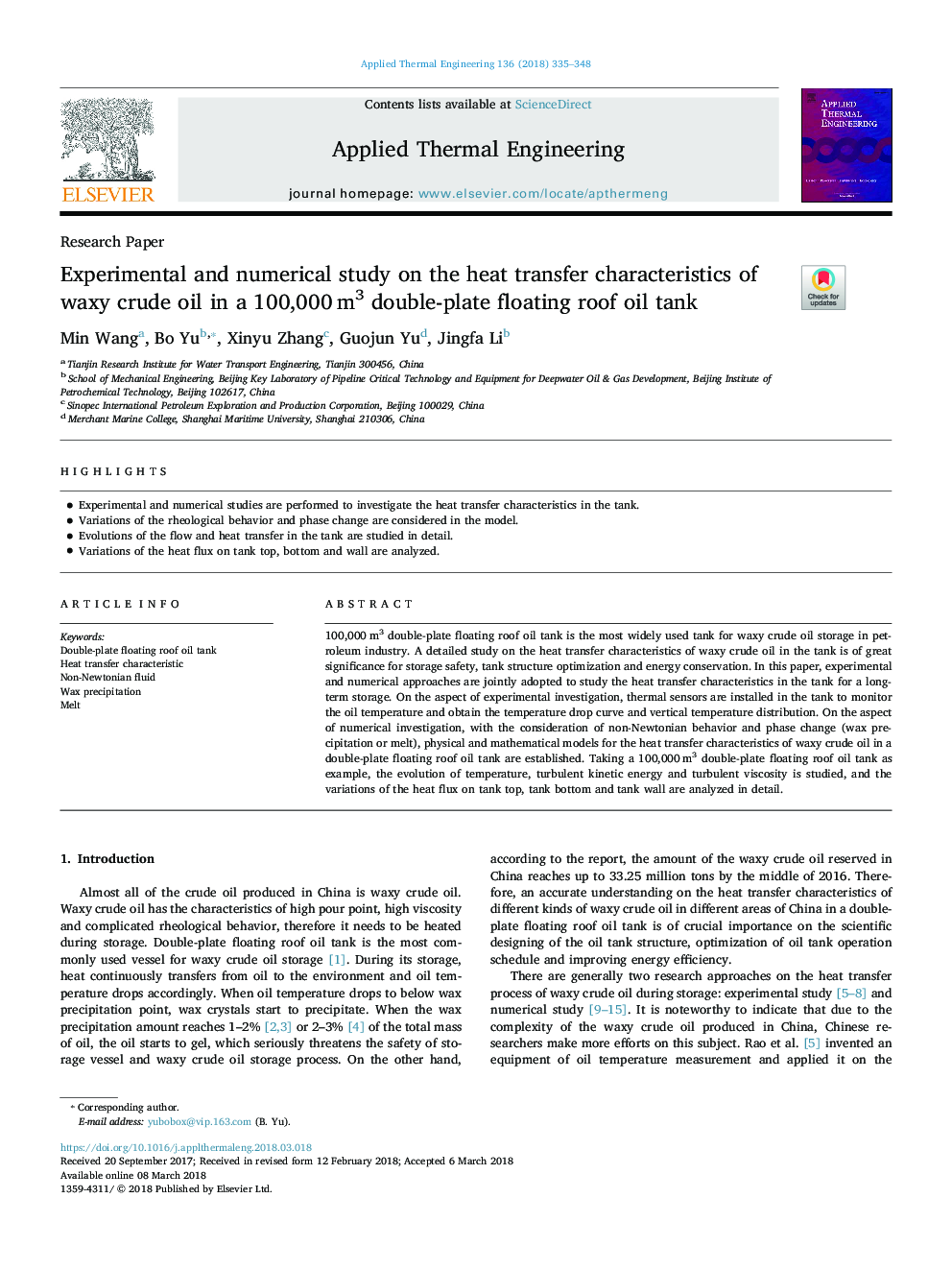| Article ID | Journal | Published Year | Pages | File Type |
|---|---|---|---|---|
| 7045586 | Applied Thermal Engineering | 2018 | 14 Pages |
Abstract
100,000â¯m3 double-plate floating roof oil tank is the most widely used tank for waxy crude oil storage in petroleum industry. A detailed study on the heat transfer characteristics of waxy crude oil in the tank is of great significance for storage safety, tank structure optimization and energy conservation. In this paper, experimental and numerical approaches are jointly adopted to study the heat transfer characteristics in the tank for a long-term storage. On the aspect of experimental investigation, thermal sensors are installed in the tank to monitor the oil temperature and obtain the temperature drop curve and vertical temperature distribution. On the aspect of numerical investigation, with the consideration of non-Newtonian behavior and phase change (wax precipitation or melt), physical and mathematical models for the heat transfer characteristics of waxy crude oil in a double-plate floating roof oil tank are established. Taking a 100,000â¯m3 double-plate floating roof oil tank as example, the evolution of temperature, turbulent kinetic energy and turbulent viscosity is studied, and the variations of the heat flux on tank top, tank bottom and tank wall are analyzed in detail.
Related Topics
Physical Sciences and Engineering
Chemical Engineering
Fluid Flow and Transfer Processes
Authors
Min Wang, Bo Yu, Xinyu Zhang, Guojun Yu, Jingfa Li,
